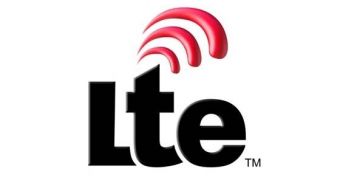The first 4G network based on the Long Term Evolution (LTE) technology was fired up last year by TeliaSonera in Sweden and Norway, but it seems that the technology won't see impressive growth until next year. According to a recent report from ABI Research, LTE should go live in a big way next year, as major carriers are preparing the roll-out of their 4G networks based on this technology.
Some of the carriers that announced commitment to the LTE standard include Verizon in the United States and DoCoMo in Japan. These wireless services providers are set to deploy LTE-based networks at large scale before the end of the ongoing year, helping the technology grow. According to ABI Research analyst Bhavya Khanna, “132 networks have reported trials or plans to launch LTE commercially, 32 more than at the end of 2009.
At the same time Khanna notes that Verizon Wireless announced previously that the first mobile phones to pack support for the LTE technology are expected to become available for purchase by May next year. This would help LTE a lot in its competition against WiMAX but, even if the former has better chances to win than the latter, WiMAX would still remain a popular 4G technology for a while.
“Despite setbacks including Russia’s Yota switching to LTE, 188 WiMAX networks are now in trial or commercial operation worldwide. With India’s wireless broadband spectrum auction recently concluded, expect that number to grow in 2011. Clearwire, a WiMAX service provider in the United States, continues to build out its network and add subscribers, buoyed by the launch of a popular WiMAX-capable handset, the HTC EVO 4G,” Khanna stated.
WiMAX would see another threat in TD-LTE, an alternative technology supported by China and Qualcomm, and which can operate on the same bandwidth as existing WiMAX networks. This state of facts could facilitate the migration of certain wireless operators from WiMAX to LTE.
“While this battle plays out, incumbent operators cannot afford to ignore their legacy 3G networks. Technology upgrades such as HSPA+ for WCDMA networks are also proving popular, helping incumbents cope with demands for increasing speeds and bandwidth efficiency. As of March 2010, over 41 network operators had trials or commercial launches of HSPA+ networks, including T-Mobile in the United States and Vodafone in Turkey,” ABI Research also notes.
More details on the study are available on the research firm's website.

 14 DAY TRIAL //
14 DAY TRIAL //